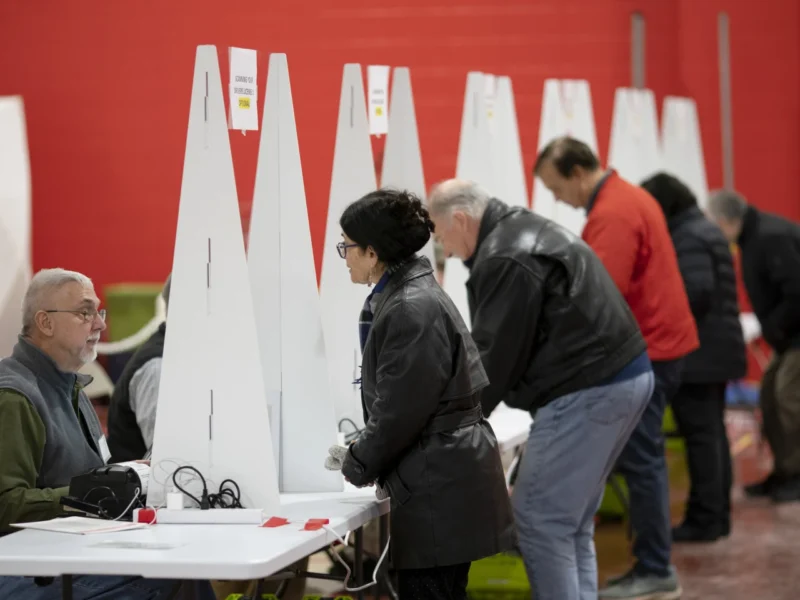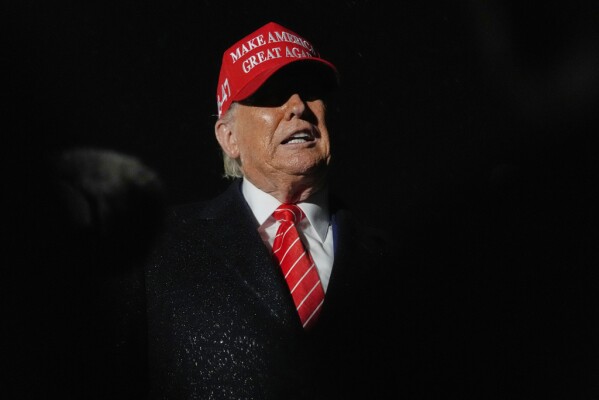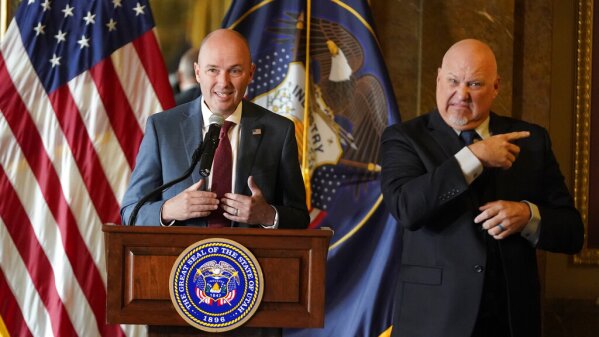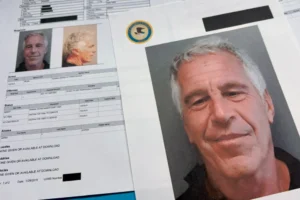Republican Push for Proof of Citizenship to Vote Proves a Tough Sell in the States
- Published In: Politics
- Last Updated: Jun 03, 2025

Voters check in to cast ballots in the New Hampshire presidential primary at a polling site in Derry, N.H., Jan. 23, 2024. (AP Photo/David Goldman, File)
BY CHRISTINA A. CASSIDY AND NADIA LATHAN
AUSTIN, Texas (AP) — President Donald Trump and congressional Republicans have made it a priority this year to require people to prove citizenship before they can register to vote. Turning that aspiration into reality has proved difficult.
Trump’s executive order directing a documentary, proof-of-citizenship requirement for federal elections has been blocked by a judge, while federal legislation to accomplish it doesn’t appear to have the votes to pass in the Senate. At the same time, state-level efforts have found little success, even in places where Republicans control the legislature and governor’s office.
The most recent state effort to falter is in Texas, where a Senate bill failed to gain full legislative approval before lawmakers adjourned on Monday. The Texas bill was one of the nation’s most sweeping proof-of-citizenship proposals because it would have applied not only to new registrants but also to the state’s roughly 18.6 million registered voters.
“The bill authors failed spectacularly to explain how this bill would be implemented and how it would be able to be implemented without inconveniencing a ton of voters,” said Anthony Gutierrez, director of the voting rights group Common Cause Texas.
Voting by noncitizens is rare
Voting by noncitizens is already illegal and punishable as a felony, potentially leading to deportation, but Trump and his allies have pressed for a proof-of-citizenship mandate by arguing it would improve public confidence in elections.
Before his win last year, Trump falsely claimed noncitizens might vote in large enough numbers to sway the outcome. Although noncitizen voting does occur, research and reviews of state cases has shown it to be rare and more often a mistake.
Voting rights groups say the various proposals seeking to require proof-of-citizenship are overly burdensome and threaten to disenfranchise millions of Americans. Many do not have easy access to their birth certificates, have not gotten a U.S. passport or have a name that no longer matches the one on their birth certificate — such as women who changed their last name when they married.

Married women who changed names are a particular concern
The number of states considering bills related to proof of citizenship for voting tripled from 2023 to this year, said Liz Avore, senior policy adviser with the Voting Rights Lab, an advocacy group that tracks election legislation in the states.
That hasn’t resulted in many new laws, at least so far. Republicans in Wyoming passed their own proof-of-citizenship legislation, but similar measures have stalled or failed in multiple GOP-led states, including Florida, Missouri, Texas and Utah. A proposal remains active in Ohio, although Gov. Mike DeWine, a Republican, has said he doesn’t want to sign any more bills that make it harder to vote.
In Texas, the legislation swiftly passed the state Senate after it was introduced in March but never made it to a floor vote in the House. It was unclear why legislation that was such a priority for Senate Republicans – every one of them co-authored the bill — ended up faltering.
“I just think people realized, as flawed as this playbook has been in other states, Texas didn’t need to make this mistake,” said Rep. John Bucy, a Democrat who serves as vice chair of the House elections committee.
Bucy pointed to specific concerns about married women who changed their last name. This surfaced in local elections earlier this year in New Hampshire, which passed a proof-of-citizenship requirement last year.

Similar laws have created confusion
Other states that previously sought to add such a requirement have faced lawsuits and complications when trying to implement it.
In Arizona, a state audit found that problems with the way data was handled had affected the tracking and verification of residents’ citizenship status. It came after officials had identified some 200,000 voters who were thought to have provided proof of their citizenship but had not.
A proof-of-citizenship requirement was in effect for three years in Kansas before it was overturned by federal courts. The state’s own expert estimated that almost all of the roughly 30,000 people who were prevented from registering to vote while it was in effect were U.S. citizens who otherwise had been eligible.
In Missouri, legislation seeking to add a proof-of-citizenship requirement cleared a Senate committee but never came to a vote in the Republican-led chamber.
Republican state Sen. Ben Brown had promoted the legislation as a follow-up to a constitutional amendment stating that only U.S. citizens can vote, which Missouri voters overwhelmingly approved last November. He said there were several factors that led to the bill not advancing this year. Due to the session’s limited schedule, he chose to prioritize another elections bill banning foreign contributions in state ballot measure campaigns.
“Our legislative session ending mid-May means a lot of things die at the finish line because you simply run out of time,” Brown said, noting he also took time to research concerns raised by local election officials and plans to reintroduce the proof-of-citizenship bill next year.

Complications prompt states to focus on other issues
The Republican-controlled Legislature in Utah also prioritized other election changes, adding voter ID requirements and requiring people to opt in to receive their ballots in the mail. Before Gov. Spencer Cox signed the bill into law, Utah was the only Republican-controlled state that allowed all elections to be conducted by mail without a need to opt in.
Under the Florida bill that has failed to advance, voter registration applications wouldn’t be considered valid until state officials had verified citizenship, either by confirming a previous voting history, checking the applicant’s status in state and federal databases, or verifying documents they provided.
The bill would have required voters to prove their citizenship even when updating their registration to change their address or party affiliation.
Its sponsor, Republican state Rep. Jenna Persons-Mulicka, said it was meant to follow through on Trump’s executive order: “This bill fully answers the president’s call,” she said.
___
Cassidy reported from Atlanta. Associated Press writers Mead Gruver in Cheyenne, Wyoming; David A. Lieb in Jefferson City, Missouri; Kate Payne in Tallahassee, Florida; Hannah Schoenbaum in Salt Lake City; Julie Carr Smyth in Columbus, Ohio; and Isabella Volmert in Lansing, Michigan, contributed to this report.













